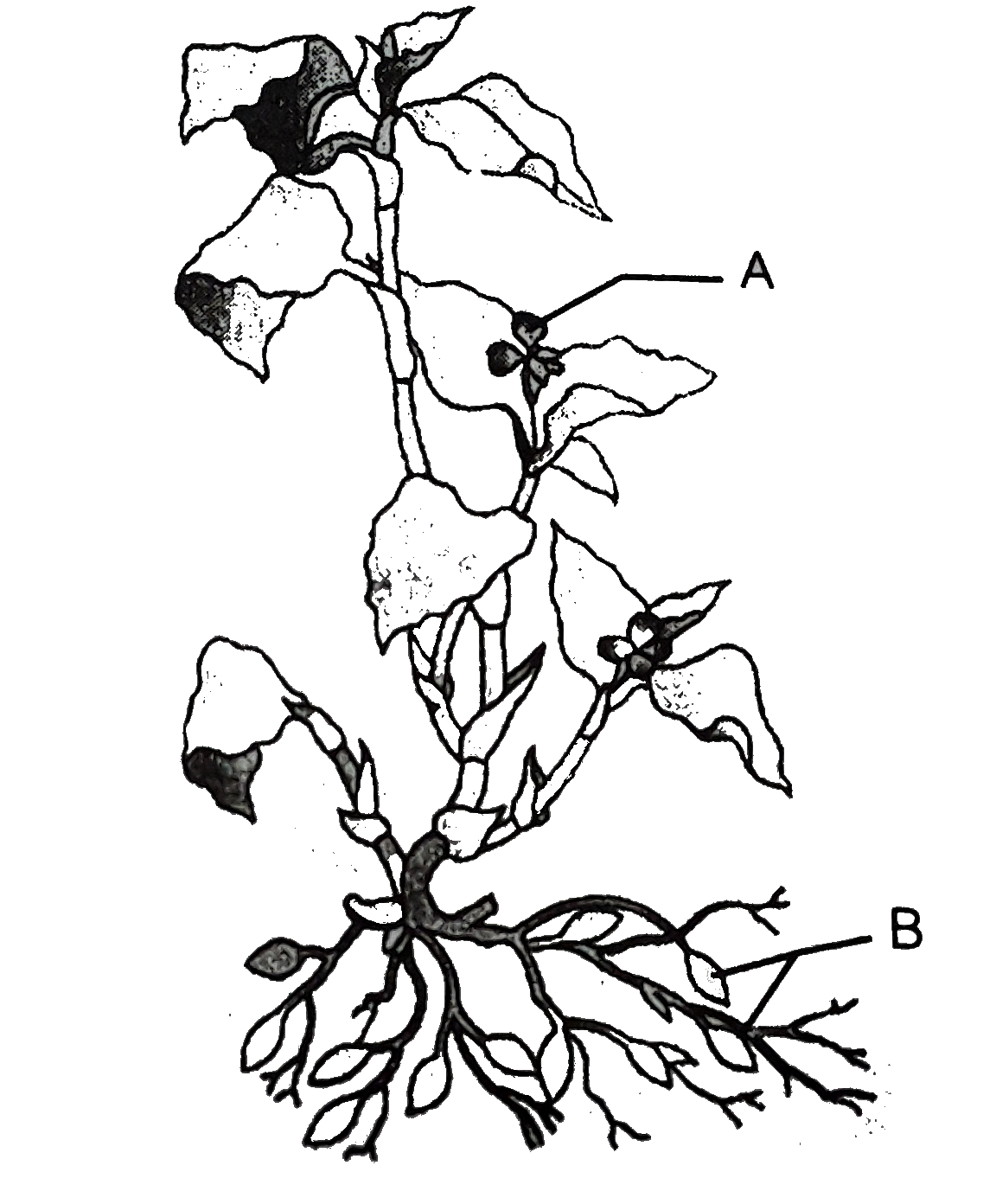Pollination characteristically occurs in
Bryophytes and angiosperms
Pteridophytes and angiosperms
Angiosperms and gymnosperms
Angiosperms and fungi.
The correct Answer is:C
To solve the question "Pollination characteristically occurs in," we will follow these steps:
Step 1: Understand the Definition of Pollination
Pollination is defined as the transfer of pollen grains from the anthers (male part of the flower) to the stigma (female part of the flower) of either the same flower or a different flower.
Hint: Pollination involves the movement of pollen, which is crucial for fertilization in plants.
Step 2: Identify Types of Pollination
There are two main types of pollination:
- Self-Pollination: Pollen from the same flower fertilizes its ovules.
- Cross-Pollination: Pollen from one flower fertilizes the ovules of another flower.
Hint: Remember the difference between self-pollination and cross-pollination.
Step 3: Determine Where Pollination Occurs
Pollination primarily occurs in:
- Angiosperms (flowering plants): They rely on various agents (like insects, wind, water) for pollination.
- Gymnosperms: They also undergo pollination, but their reproductive structures are different from angiosperms.
Hint: Focus on the plant groups that have flowers or cones for reproduction.
Step 4: Eliminate Incorrect Options
- Bryophytes: These do not undergo pollination; they rely on water for the transfer of male gametes.
- Pteridophytes: Similar to bryophytes, they also do not have characteristic pollination.
- Fungi: They do not have a pollination process as they reproduce differently.
Hint: Consider the reproductive methods of each group to identify which ones do not involve pollination.
Step 5: Conclude with the Correct Answer
Based on the analysis, the correct answer is that pollination characteristically occurs in angiosperms and gymnosperms.
Final Answer: Pollination characteristically occurs in angiosperms and gymnosperms.
Pollination is defined as the transfer of pollen grains from the anthers (male part of the flower) to the stigma (female part of the flower) of either the same flower or a different flower.
There are two main types of pollination:
- Self-Pollination: Pollen from the same flower fertilizes its ovules.
- Cross-Pollination: Pollen from one flower fertilizes the ovules of another flower.
Pollination primarily occurs in:
- Angiosperms (flowering plants): They rely on various agents (like insects, wind, water) for pollination.
- Gymnosperms: They also undergo pollination, but their reproductive structures are different from angiosperms.
- Bryophytes: These do not undergo pollination; they rely on water for the transfer of male gametes.
- Pteridophytes: Similar to bryophytes, they also do not have characteristic pollination.
- Fungi: They do not have a pollination process as they reproduce differently.
Based on the analysis, the correct answer is that pollination characteristically occurs in angiosperms and gymnosperms.
Topper's Solved these Questions
- NO IDEABOOK - DINESH PUBLICATION ENGLISHCHAPTER - NO IDEAEXERCISE - Check Your Grasp
32 Videos
- NO IDEABOOK - DINESH PUBLICATION ENGLISHCHAPTER - NO IDEAEXERCISE - Brain Teasers
37 Videos
- MOLLUSCABOOK - DINESH PUBLICATION ENGLISHCHAPTER - MOLLUSCAEXERCISE - CYG
10 Videos
- ORGANISMS AND THE ENVIRONMENTBOOK - DINESH PUBLICATION ENGLISHCHAPTER - ORGANISMS AND THE ENVIRONMENTEXERCISE - CYG
17 Videos
Similar Questions
Knowledge Check
Radial vascular bundles characteristically occurs in
Amonocot and dicot stemsBmonocot and dicot leavesCmonocot and dicot rootsDall of these
Characteristic autonomy occurs in
View SolutionPollination by water is
View SolutionPollination occurs in
View SolutionSiphonogamy and indirect pollination are characteristics of
1 Phanerogams without ovary
2 Phanerogams with ovary
3 All phanerogams
4 All plants having sporophyte as independent plant body
View SolutionIn gymnosperms pollination generally occurs by
View SolutionPollination by ants is
View SolutionIn the figure given below the plant bears two different types of flowers marked 'A' and 'B'. Identify the types of flowers and state the type of pollination that will occur in them.

View Solution
